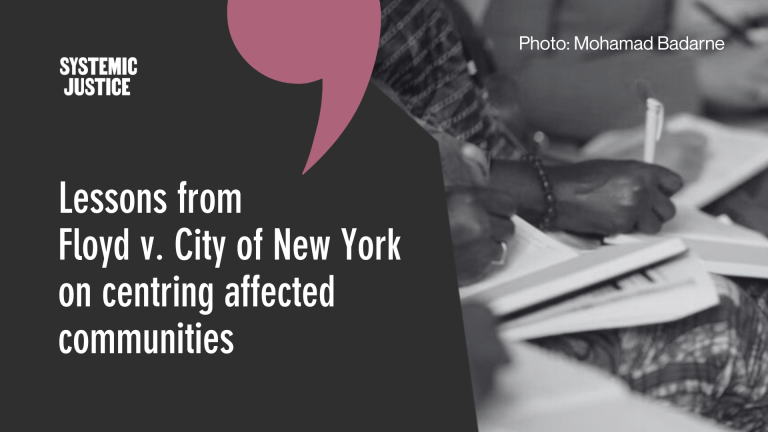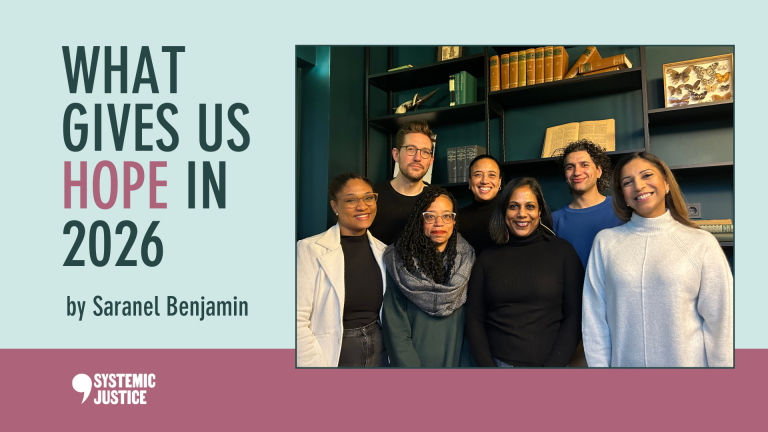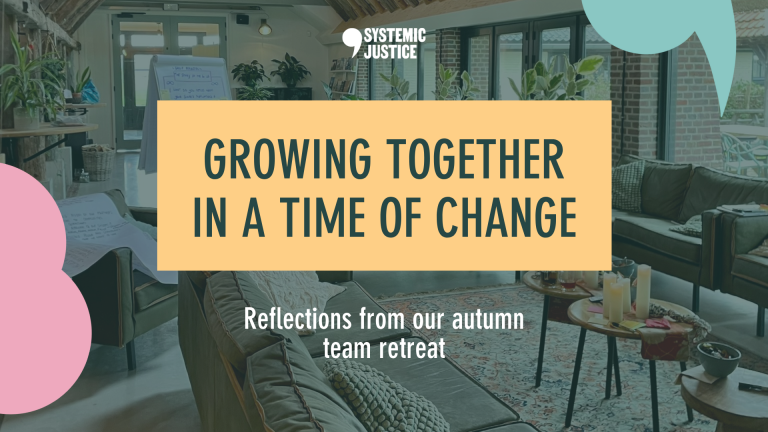
Lessons from Floyd v. City of New York on centring affected communities
It’s the 100th anniversary of Black History Month in the US. It’s also Black History Month in some European countries. As we think of the colossal gains made by the Civil
Across Europe, governments are excluding certain groups, including migrants and asylum seekers, members of the LGBTQI+ community, Roma people, sex workers, members of religious groups, and others, from being able to access essential services, establishing barriers to health care services, and making it impossible for them to access the labour markets they need to thrive. There is a clear pattern of excluding specific groups, based on who is deemed “undeserving” or does not “meet the criteria” for accessing government assistance and support.
By providing fewer services while simultaneously increasing the barriers to accessing them, much of the burden to address essential needs for marginalised and racialised people end up with (civil) society. This dangerous shift is harmful, with a political disdain for the dignity of the most marginalised and vulnerable across our societies. It also opens the door to further discrimination, criminalisation, and exclusion.
Governments tend to deny their accountability towards welfare by focusing on individual cases, rather than looking for patterns or context. Structural efforts to challenge this approach and refocus the public debate are currently virtually absent; to help change this, we need to build litigation projects together with community partners to pursue transparency and accountability.
During our Europe-wide Roundtable series between April and July 2022, activists and community organisers shared their experiences to help shape priorities for our future work. These conversations made clear the extent to which a policy of exclusion was felt by many marginalised communities, regardless of which country they were based in.
In particular, it was noted that survivors of gender-based violence, Roma communities, LGBTQI+ communities, Muslim communities, and migrant communities broadly face the violence of unequal social protection—in many cases experiencing homelessness, poverty, and institutional discrimination. These discussions brought to light several opportunities for action, like securing equal access to healthcare and welfare for people navigating the asylum system, and challenging exclusionary and ableist support services. You can read more here.
Social protection is one of the areas in which we are building joint litigation projects, and we are currently connecting with communities across Europe. Keep an eye on our Instagram and LinkedIn to hear about updates on this and more.

It’s the 100th anniversary of Black History Month in the US. It’s also Black History Month in some European countries. As we think of the colossal gains made by the Civil

Whenever we enter a new year, we tend to make resolutions, set new goals, and reassess our values – all in the pursuit of a

When Saranel Benjamin stepped into the role of the Executive Director at Systemic Justice, she brought with her a lifetime of decolonial activism, shaped by

This year’s autumn retreat gave us the space to reconnect, meet each other in person, and come together during an important phase of transition at
Sign up for our newsletter and we’ll keep you up-to-date on our work!

It’s the 100th anniversary of Black History Month in the US. It’s also Black History Month in some European countries. As we think of the colossal gains made by the Civil

Whenever we enter a new year, we tend to make resolutions, set new goals, and reassess our values – all in the pursuit of a

When Saranel Benjamin stepped into the role of the Executive Director at Systemic Justice, she brought with her a lifetime of decolonial activism, shaped by